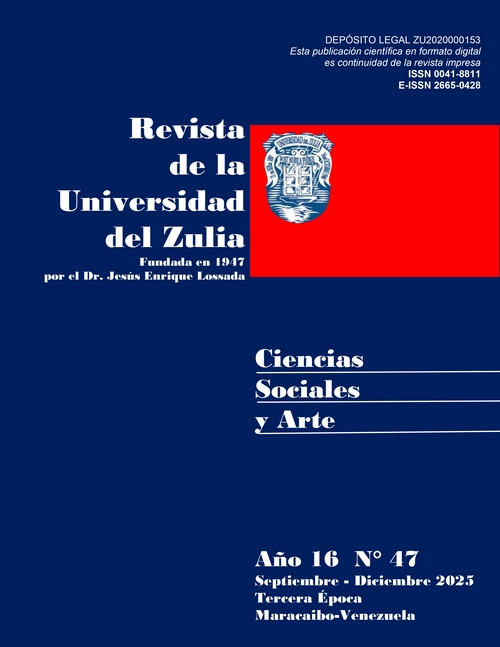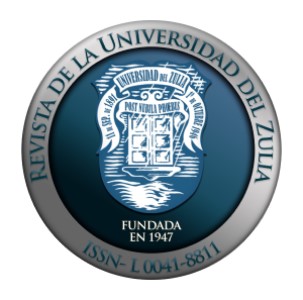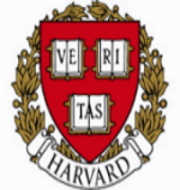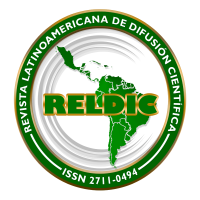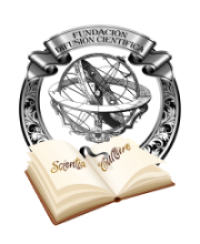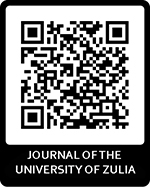Educating for Peace: The Challenge of Building the Society of the Future and the Possible World. A Question of Public Policies
Abstract
Educating for peace is not a complex challenge in the midst of a world threatened with collapse as a result of exclusion, discrimination and intolerance. This research, as a result of a documentary review with a qualitative approach, was intended to analyze the benefits of educating for peace, a process that is needed as a hopeful way out to build the society of the future and the possible world; from there, we tried to deduce the theoretical, epistemic and practical referents based on which to formulate public policies that integrate synergistic efforts between the State, the educational institution and society. The results indicate that educating for peace not only responds to a global requirement, but to the process that in permanent construction and throughout life, urges humanity to bet on hospitality, mutual respect and active tolerance, as universal values based on which to weave bonds of fraternal unity in which symmetrical and fruitful dialogue is established as the revitalizing force of full conviviality. In conclusion, building the foundations of the possible world requires from humanity the synergistic disposition of wills that, together with strategic institutional operation, allow the formulation of situated proposals, whose focus results in the acceptance of the other and in the validation of diverse belongings without prejudicial conditions, until achieving functional and peaceful conviviality, as well as transcendence to the planetary vocation.
Downloads
References
Arango, V. (2007). Paz social y cultura de paz. Ediciones Panamá Viejo.
Barragán, F., Maćkowicz, J., Szarota, Z y Pérez, D. (2020). Educación para la paz, la equidad los valores. Ediciones Octaedro.
Battistessa, D. (2018). Johan Galtung y el método transcend: experiencias y prácticas de resolución de conflictos con métodos pacíficos en América Latina. Cuaderno Jurídico y Político, 4(2), 60-72. https://doi.org/10.5377/cuadernojurypol.v4i12.11120
Berlín, I. (1998). Cuatro ensayos sobre la libertad. Editorial Alianza.
Berlín, I. (2009). El estudio adecuado de la humanidad. Turner Publicaciones.
Berlín, I. (2011). Filosofía de la razón plural. Biblioteca Nueva.
Berlín, I. (2014). Dos conceptos de libertad. El fin justifica los medios. Mi trayectoria intelectual. Alianza Editorial.
Berlín, I. (2017a). El sentido de la realidad. Sobre las ideas y su historia. Taurus.
Berlín. I. (2017b). El poder de las ideas. Ensayos escogidos. Página Indómita.
Berlín, I. (2017c). Sobre la libertad. Alianza Editorial.
Berlín, I. (2018). Lo singular y lo plural. Página Indómita.
Berlín, I. (2019). El fuste torcido de la humanidad. Ediciones Península.
Berlín, I. (2022). Sobre la libertad y la igualdad. Página Indómita.
Calderón, P. (2009). Teoría del conflicto de Johan Galtung. Revista Paz y Conflictos, 2 (2), 60-81. https://revistaseug.urg.es/index.php/revpaz/article/view/432/477
Camps, V. (2000). Los valores de la educación. Editorial Anaya.
Camps, V. (2019). Virtudes públicas. Arpa.
Cely-Fuentes, D. (2021). Teoría de la resolución de conflictos de Johan Galtung para la implementación de la Cátedra de la Paz. Revista Tecnología-Educativa 2.0, 11 (2), 48-56. https://doi.org/10.37843/rted.v11i2.252
Cortina, A. (2021). Ética cosmopolita. Una apuesta por la cordura en tiempos de pandemia. Paidós.
Derrida, J y Defourmantelle, A. (1997). La hospitalidad. Editor Virtual Titivillus.
Diez, J. (2024). In Memoriam Johan Galtung (1930-2024). Revista Española de Ciencias Sociológicas, 187, 3-6. https://doi.org/10.5477/cis/reis.187.3-6
Fisas-Armengol, V. (1998). Cultura de paz y gestión de conflictos. Icaria.
Fusaro, D. (2022). Pensar diferente. Filosofía del disenso. Editorial Trotta.
Galtung, J. (s/f). Violencia, conflictos y su impacto. Sobre los efectos invisibles e invisibles de la violencia. Disponible https://red.pucp.edu.pe/wp-content/uploads/biblioteca/081020.pdf
Galtung, J. (1984). ¡Hay alternativas! 4 caminos hacia la paz y la seguridad. Tecnos.
Galtung, J. (1998). Tras la violencia, 3R: reconstrucción, reconciliación, resolución. Afrontando los efectos visibles e invisibles de la guerra y la violencia. Red Gernika.
Galtung, J. (2003a) Paz por medios pacíficos. Paz y conflicto, desarrollo y civilización, Gernika Gogoratuz.
Galtung, J. (2003b), Violencia Cultural. Guernika-Lumo, Gernika Gogoratuz.
Galtung, J. (2003c) Trascender y transformar. Una introducción al trabajo de conflictos. Transcend – Quimera.
Galtung, J. (2009). Paz por medios pacíficos: paz y conflictos, desarrollo y civilización. Gernika Gogoratuz y Working Papers Munduam Paz y Desarrollo.
García, V. (2000). Johan Galtung. La transformación de los conflictos en medios pacíficos. Cuadernos de Estrategia, 111, 2009, 125-159 https://dialnet.unirioja.es/servlet/articulo?codigo=5995158
Giraldo, H. B. (2018). Enseñanza-aprendizaje con prospectiva de paz en la formación policial. Ratio Juris UNAULA, 13(26), 145-160. DOI: 10.24142/raju.v13n26a6
Illich, I. (1974). La convivialidad. Barral Editores.
Markus, G. (2021). Ética para tiempos oscuros. Valores universales para el siglo XXI. Pasado y Presente.
Morales, J. (2024). Derechos humanos, cultura de paz y educación en ciudadanía global: triada de una política pública garante de la convivencia humana. Revista DYCS VICTORIA, 6(2), 38-52. https://doi.org/10.29059/rdycsv.v6i2.207
Rodríguez, M. (2009). Educación para los derechos humanos, para la democracia y para la paz. Coordinación Educativa y Cultural Centroamericana, CECC/SICA.
Sandoval, B. (2023). Teoría de la paz de Johan Galtung en la educación. Revista de Investigación y Praxis en Cs Sociales, 2 (3), 171-176. https://doi.org/10.24054/ripcs.v2i3.2392
Salinas, B. (2023). Educación para la paz desde Galtung. Análisis, 55 (102), 1-27. https://doi.org/10.15332/21459169.7634
Savater, F. (2000). Ética y ciudadanía: tolerancia y solidaridad. Ariel.
Savater, F. (2020). Habitar y gobernar. Inspiraciones para una nueva concepción política. Editorial NED.
Villarroel, G (2020). Isaiah Berlín: El poder de las ideas. CEDICE-Universidad Central de Venezuela.
Copyright (c) 2025 Jesús Alfredo Morales Carrero

This work is licensed under a Creative Commons Attribution-NonCommercial-ShareAlike 4.0 International License.
Copyright
The Revista de la Universidad del Zulia declares that it recognizes the rights of the authors of the original works published in it; these works are the intellectual property of their authors. The authors preserve their copyright and share without commercial purposes, according to the license adopted by the journal..
This work is under license:
Creative Commons Reconocimiento-NoComercial-CompartirIgual 4.0 Internacional (CC BY-NC-SA 4.0)


